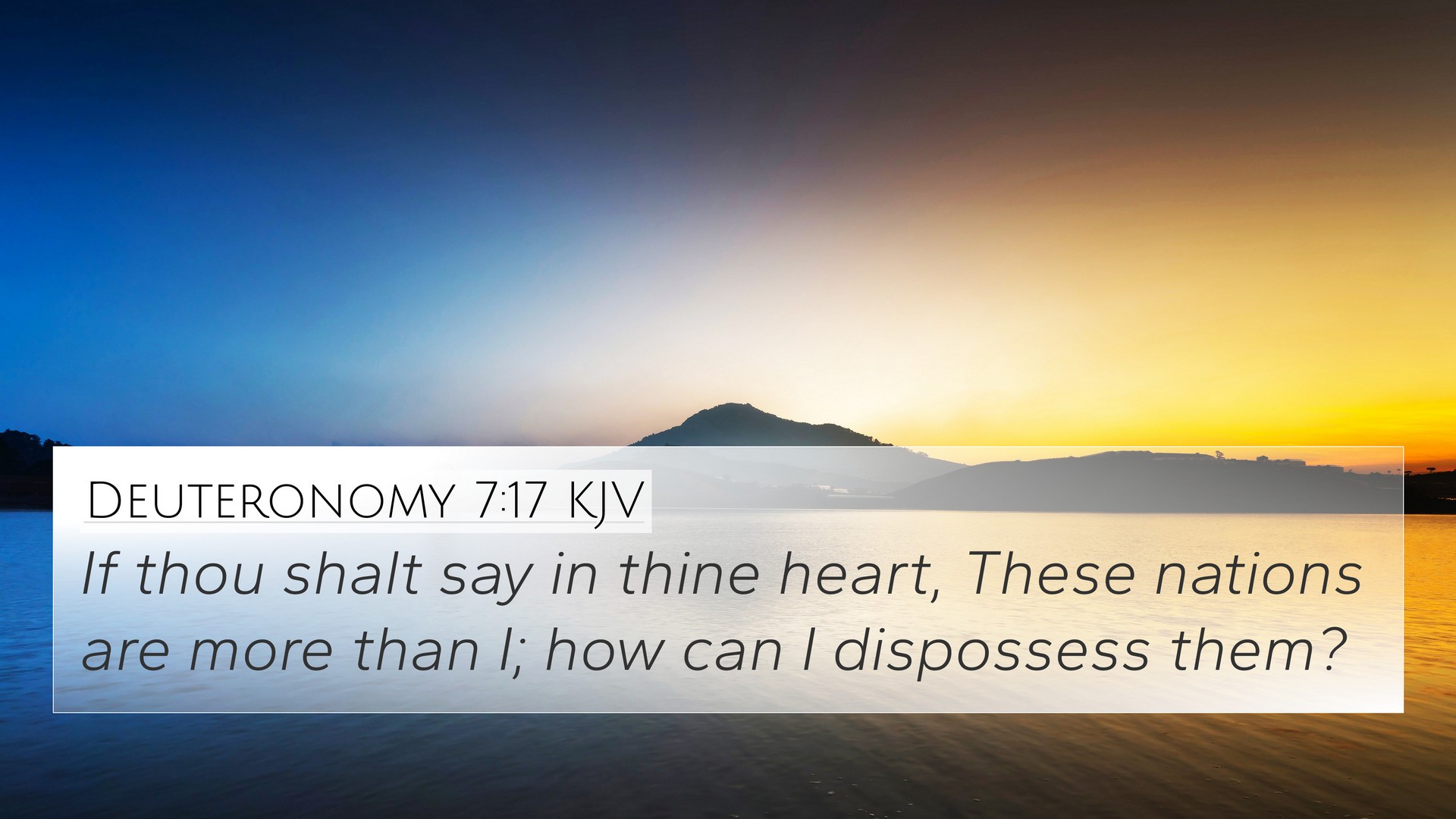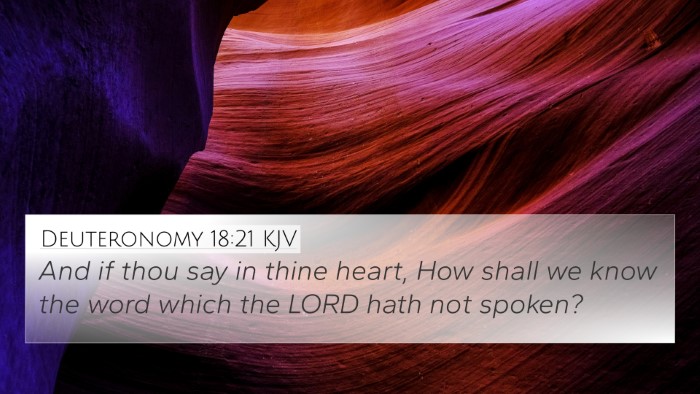Understanding Deuteronomy 7:17
Verse: "If thou shalt say in thine heart, These nations are more than I; how can I dispossess them?"
Meaning and Interpretation
Deuteronomy 7:17 addresses the concerns of the Israelites as they were poised to enter the Promised Land. They were confronted with the prospect of displacing nations that seemed larger and more powerful. This verse serves as a reminder of the importance of faith in God's ability to deliver them, even when circumstances appear daunting. Commentators emphasize the essential theme of divine assistance amid fears and uncertainties.
Commentary Insights
-
Matthew Henry:
Henry outlines that the Israelites’ fear was rooted in their perception of their own inadequacy. He encourages readers to remember God’s promises and power when facing overwhelming odds. The inquiry posed in this verse is aimed at deterring doubt and repositioning the focus on reliance on God instead of personal strength.
-
Albert Barnes:
Barnes explains the historical context and the fear that was common among the Israelites. He highlights that faith and trust in God should supersede any concern they have regarding the size and number of the enemy. This commentary argues for the necessity of spiritual courage in fulfilling God’s commands, suggesting that reliance on one's wisdom or strength leads to discouragement.
-
Adam Clarke:
Clarke discusses the psychological aspect of fear and self-doubt present in the believer. He notes that this scripture is not only a historical account but also a broader lesson about trust in divine providence. The tone of the verse implies that believers should not fear adversaries, as God's presence brings assurance and victory.
Cross-References
This verse connects to various other scriptures that emphasize God's faithfulness and power:
- Joshua 1:9: "Have I not commanded you? Be strong and courageous. Do not be afraid; do not be discouraged, for the LORD your God will be with you wherever you go."
- Psalm 118:6: "The LORD is with me; I will not be afraid. What can mere mortals do to me?"
- Isaiah 41:10: "So do not fear, for I am with you; do not be dismayed, for I am your God. I will strengthen you and help you; I will uphold you with my righteous right hand."
- Romans 8:31: "What then shall we say to these things? If God is for us, who can be against us?"
- 2 Corinthians 12:9: "But he said to me, 'My grace is sufficient for you, for my power is made perfect in weakness.' Therefore I will boast all the more gladly about my weaknesses, so that Christ’s power may rest on me."
- Philippians 4:13: "I can do all this through him who gives me strength."
- Hebrews 13:6: "So we say with confidence, 'The Lord is my helper; I will not be afraid. What can mere mortals do to me?'"
Thematic Connections
The theme of faith versus fear resonates through the Bible. Deuteronomy 7:17 encourages believers to reflect on God's past acts of deliverance in order to strengthen their current faith. This notion crosses over into the New Testament, where believers are reminded consistently of the assurance and comfort that comes from a relationship with God.
Tools and Resources for Cross-Referencing
As you study scripture, utilizing tools for Bible cross-referencing can enhance your understanding of thematic connections. Here are some effective resources:
- Bible concordance
- Bible cross-reference guide
- Cross-reference Bible study guides
- Comprehensive Bible cross-reference materials
Conclusion
In summary, Deuteronomy 7:17 emphasizes the necessity of faith in God's power despite apparent challenges. It encourages a heart positioned towards trust rather than fear, underscoring the importance of remembering God's historical acts of deliverance as believers face their modern-day giants. Cross-referencing this verse with other passages builds a robust understanding of the continuous dialogue on faith found throughout scripture.













